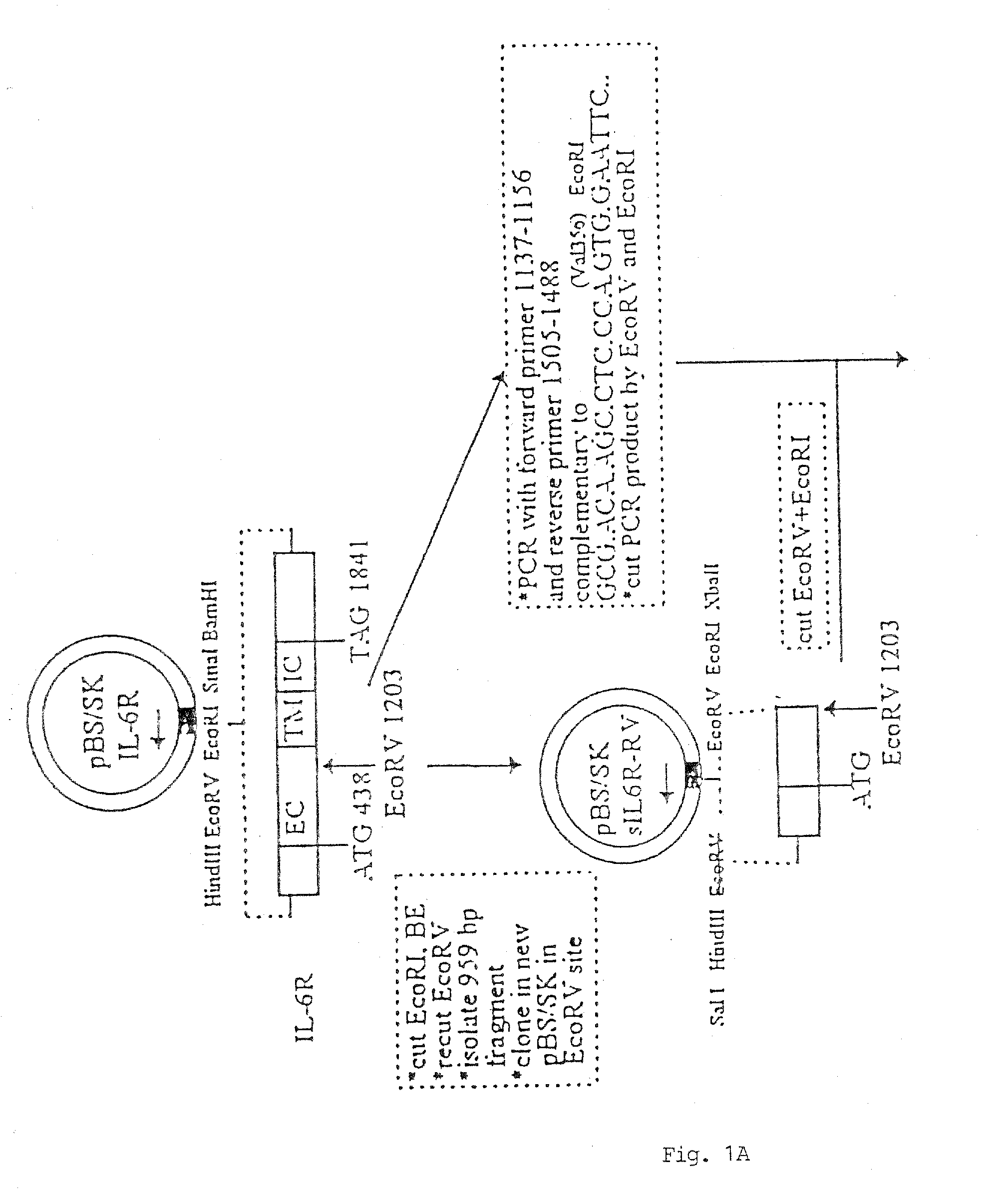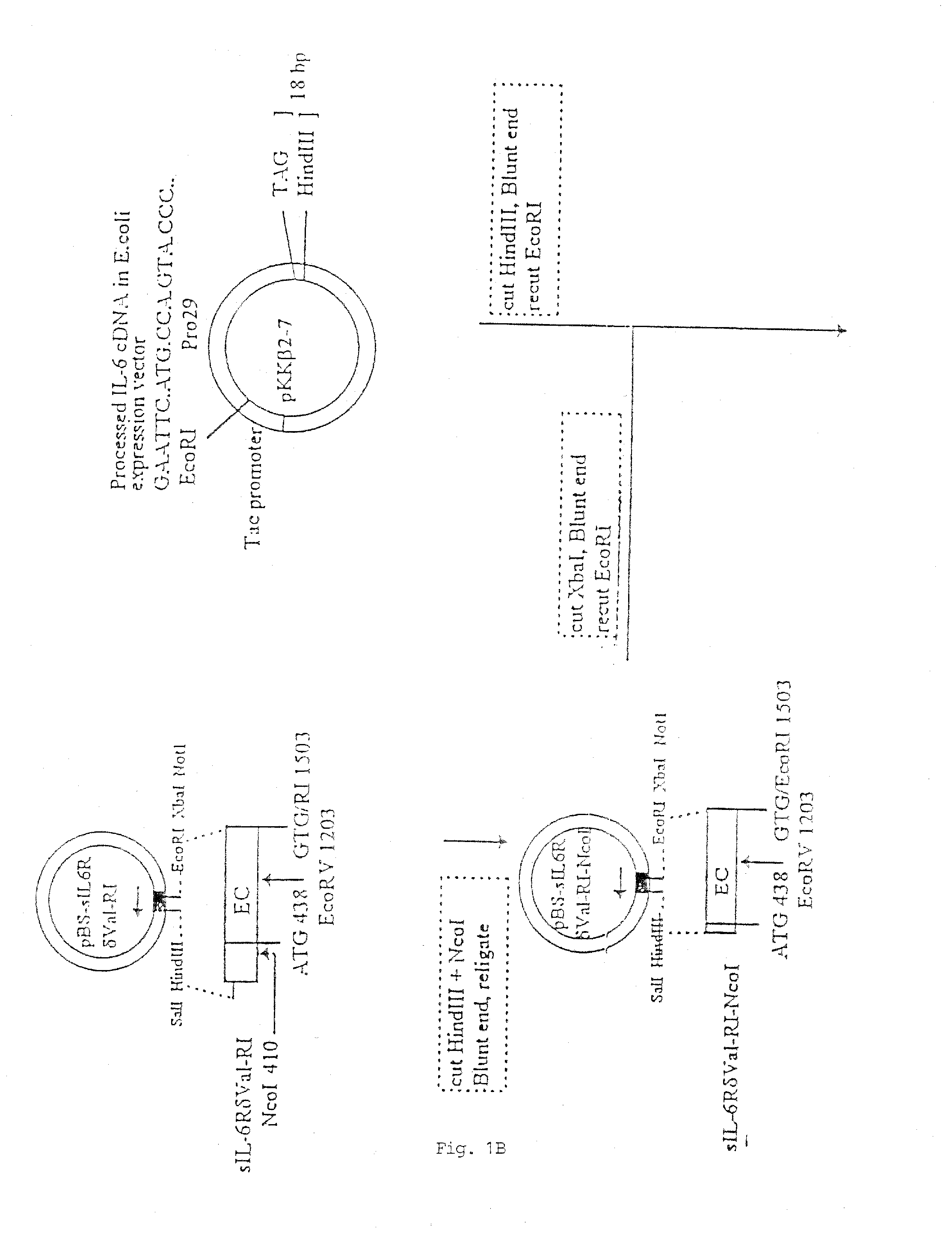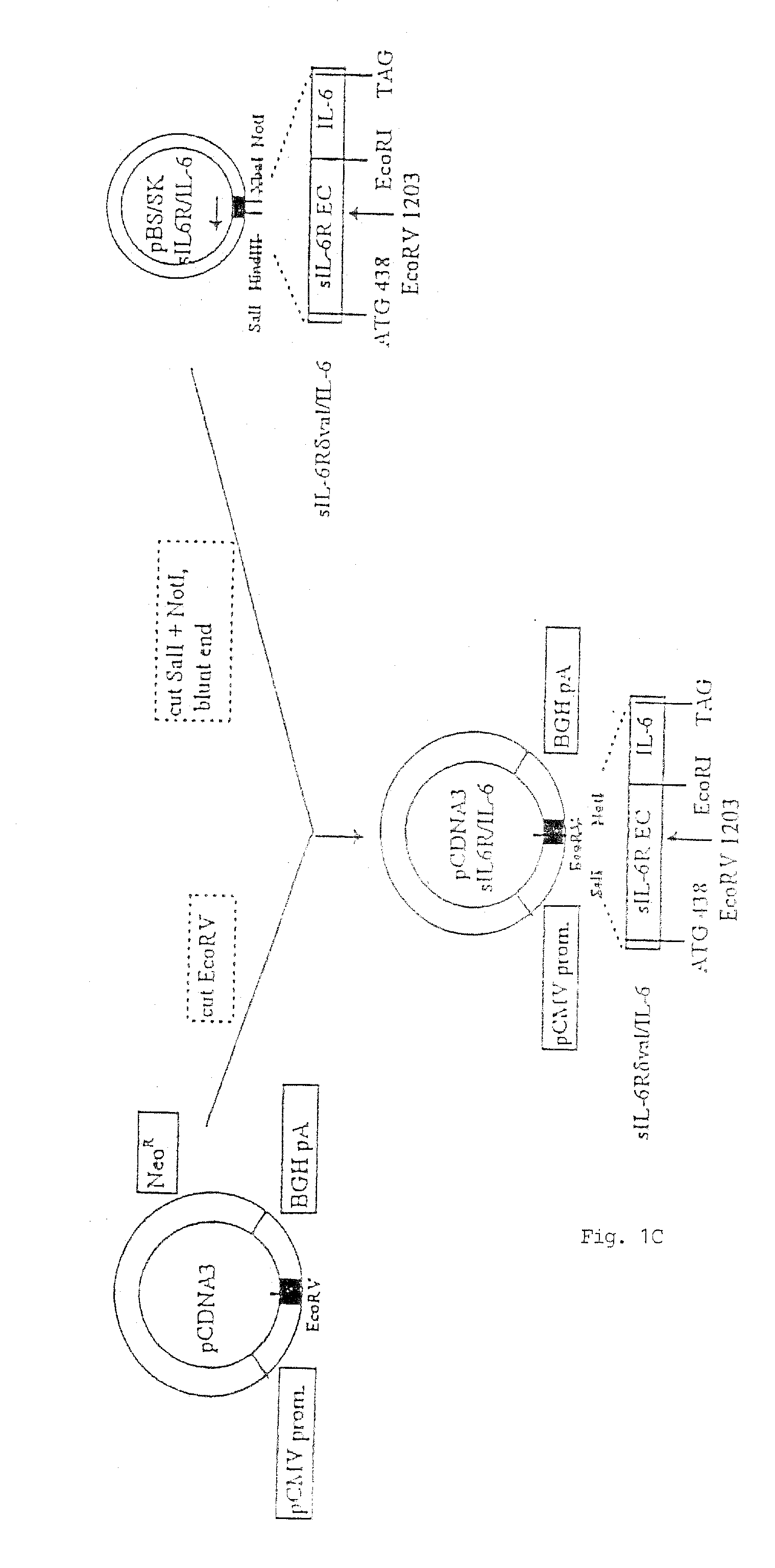Chimeric Interleukin-6 Soluble Receptor/Ligand Protein, Analogs Thereof and Uses Thereof
a technology of soluble receptor and ligand protein, applied in the field of chimeric interleukin-6 biological activities, can solve problems such as immunogenic reactions, and achieve the effect of reducing the risk of induction
- Summary
- Abstract
- Description
- Claims
- Application Information
AI Technical Summary
Benefits of technology
Problems solved by technology
Method used
Image
Examples
example 1
Construction of the sIL-6RδVal / IL-6 Chimera Expression Vector
[0101] In FIG. 1, there is shown a schematic flow-diagram of the steps taken to construct the expression vector carrying the sequence coding for the sIL-6RδVal / IL-6 chimeric protein, inclusive of all the various starting and intermediary vectors, various reagents and reaction steps. This construction procedure was essentially using techniques well known in the art for constructing expression vectors of choice (see, for example, Sambrook et al., 1989). The procedure was, briefly, as follows:
[0102] A library of cDNAs from human breast carcinoma T47D cells was cloned in the lamda (λ) gt11 bacteriophage and screened with oligonucleotide probes derived from the IL-6R sequence of Yamasaki et al (1988). One λgt11 CDNA clone was isolated which had the entire human IL-6R coding sequence. The insert was excised from λgt11 by EcoRI and cloned in the Multiple Cloning Site (MCS) of the E.coli phagemid Blue Script pBS / SK (Stratagene ...
example 2
Expression of the sIL-6RδVal / IL-6 Chimera in Human Cells.
[0106] Using essentially standard techniques of mammalian cell culture, cell transfection and analysis of the transfected cells for expression of the newly introduced DNA sequence to be expressed (for procedures, see, for example, Sambrook et al., 1989), the above plasmid construct (Example 1) was used to transfect human cells and its expression therein was assessed. Briefly, the following procedures were employed:
[0107] Human HEK 293 cells (ATCC CRL 1573, transformed primary human embryonal kidney cells) were transfected with the plasmic construct pCDNA3-sIL-6R / IL-6 DNA (set forth in Example 1 above). Log phase cultures of HEK 293 were trypsinized and seeded in 9 cm Nunc plates (2.5×106 cells / plate). One day later, transfection was carned out with 10 μg pCDNA3-sIL-6R / IL-6 DNA by the CaPO4 precipitation procedure (Sambrook et al, 1989) and 1 hour later the medium changed to DMEM-10% FCS and the culture continued for an addi...
example 3
The sIL-6R / IL-6 Chimera Arrests Growth and Induces Differentiation of Metastatic Melanoma Cells.
[0110] The F10.9 clone derived from B16 melanoma cells forms highly metastatic tumors in C57Black / 6 mice which kill the animals from pulmonary metastases within 2-3 months (Katz et al, 1995). Addition of the sIL-6R / IL-6 chimeric protein to F10.9 cells culture produces a profound morphological change in the cells and an arrest in their growth (FIG. 4). The F10.9 cells treated by the chimera become elongated, with protruding dendritic extensions, resembling the spindloid differentiation of embryonic melanocytes or glial cells.
[0111] The growth of the cells was quantitated 4 days after seeding 3×103 cells in wells of a 96-well microplate in 0.2 ml RPMI 1640 medium with 10% FCS. The cells were fixed in 12.5% glutaraldehyde for 30 minutes, washed in water and stained with 0.1% crystal violet for 30 minutes. After thorough washing and drying, the stain was extracted by 10% acetic acid and th...
PUM
| Property | Measurement | Unit |
|---|---|---|
| molecular weight | aaaaa | aaaaa |
| molecular weight | aaaaa | aaaaa |
| concentrations | aaaaa | aaaaa |
Abstract
Description
Claims
Application Information
 Login to View More
Login to View More - R&D
- Intellectual Property
- Life Sciences
- Materials
- Tech Scout
- Unparalleled Data Quality
- Higher Quality Content
- 60% Fewer Hallucinations
Browse by: Latest US Patents, China's latest patents, Technical Efficacy Thesaurus, Application Domain, Technology Topic, Popular Technical Reports.
© 2025 PatSnap. All rights reserved.Legal|Privacy policy|Modern Slavery Act Transparency Statement|Sitemap|About US| Contact US: help@patsnap.com



